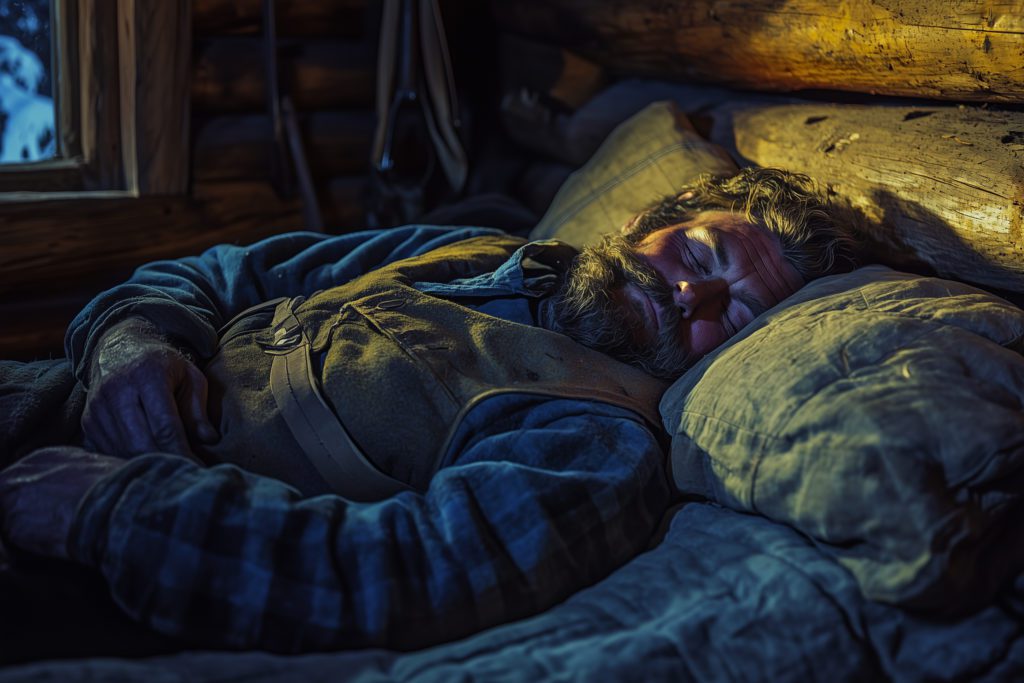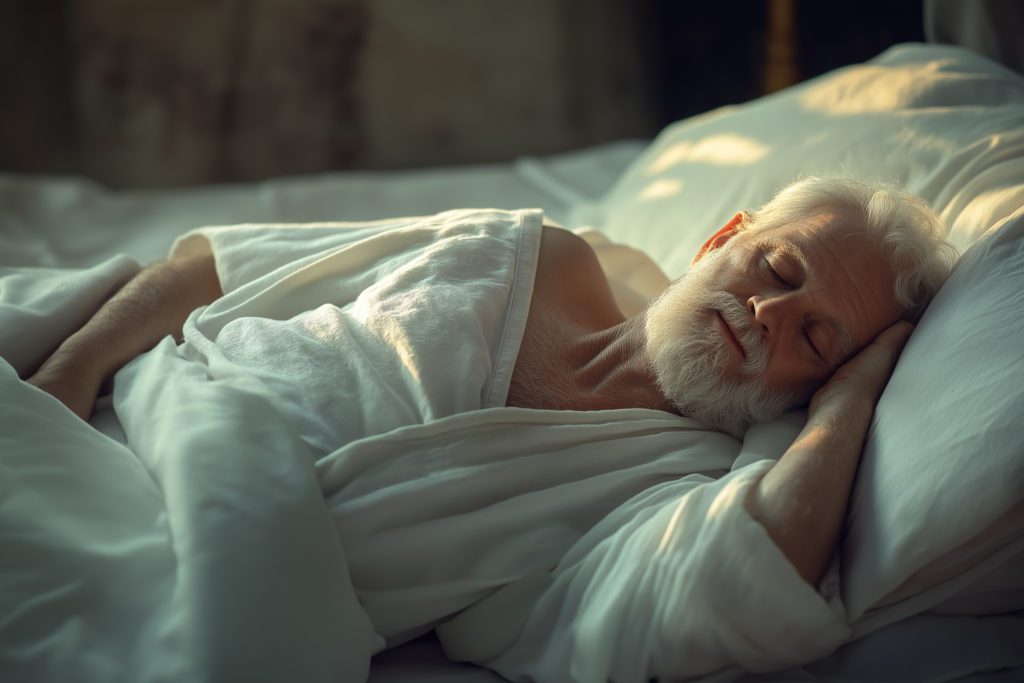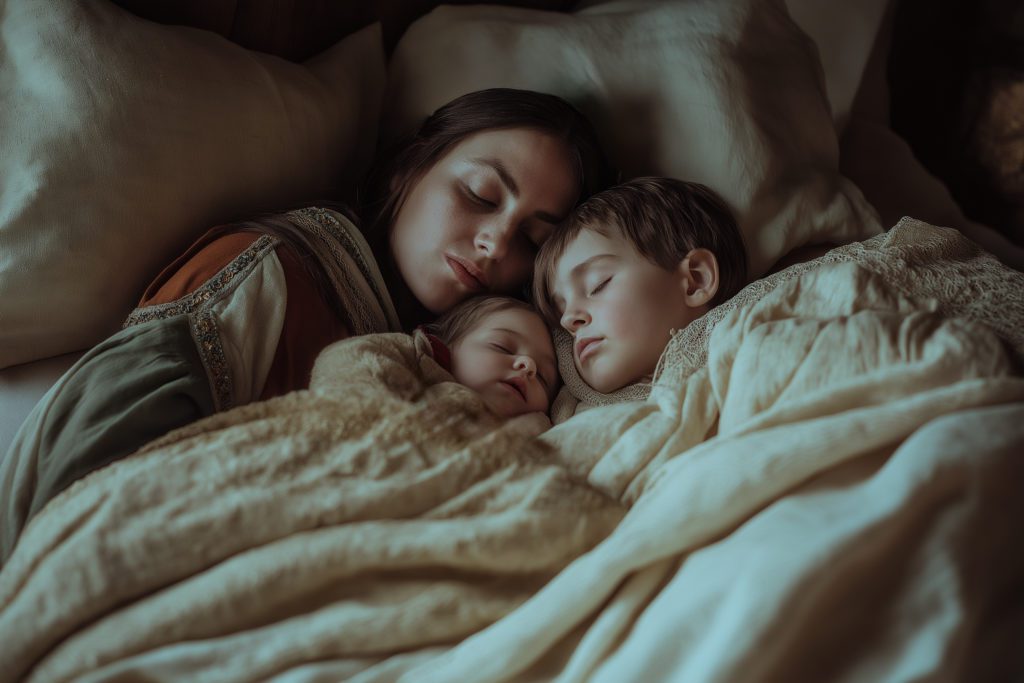
Should You Believe These Common Sleep Superstitions?
Can superstitions help you fall asleep? Get a look at the science behind popular historical sleep-related superstitions.

Time to put your debunking cap on! Sleep is one of the most important functions we perform as humans. Without it, we can't live. Sleep is also a complex phenomenon that is impacted by hormonal shifts, our health and mood, the 24-hour light/dark cycle of the day, and other things that can be perceived as "celestial" influences.
That's probably why so many superstitions about sleep have popped up over the years. Fortunately, we know that good sleep is more about good sleep hygiene than it is about "luck." It can still be fun to take a look back at some popular sleep-related superstitions that humans have believed over the centuries. Here's a look at some fun, quirky, and historical sleep-related superstitions that we can finally put to bed!
Putting Bells Above Your Bed Keeps Evil Spirits Away
People living centuries ago in Europe firmly believed that evil spirits were afraid of bells. While bells were also rung in public places for this reason, some people tied bells above their beds to ensure that the jingling would ward off evil spirits and "devils."
The origin of bells having supernatural powers in Christianity likely comes from a reference to Aaron having a golden bell upon the hem of his robe while walking into a "holy place" in the time of Moses in Exodus. People who followed the superstition that bells could cause demons to scatter believed that the practice of tying bells over their beds was the best way to get a peaceful, safe night's rest!
Facing North While Sleeping Is Bad for You
Does the direction your toes point toward while sleeping have any bearing on sleep quality? There's no evidence for that. However, that hasn't stopped followers of Vastu Shastra from avoiding sleeping north to promote well-being.
Vastu Shastra is an ancient Indian system focused on balancing energy flow in living spaces. Followers strive to optimize well-being and prosperity by aligning the five natural elements with layout and arrangement of their physical spaces.
According to Vastu Shastra, sleeping with your body facing north leads to disrupted sleep. It can also cause a host of ailments that can include mood swings, high blood pressure, and violent headaches. While nobody can fault people for wanting to arrange their homes in ways that promote positive energy, stressing over which way your bed is facing can cause unnecessary restless nights!
How You Position Your Shoes Impacts Your Dreams
People who follow this superstition believe that placing your shoes upside down or facing your bed can lead to a night of tossing and turning. That's because how you position your shoes before falling asleep determines dream quality. Shoe placement can also help your sleep quality. For example, people who suffer from night sweats are often told that placing their shoes under their bed can help to cool things down. However, other superstitions actually say that sleeping with your shoes under your bed causes bad luck.
While advice about where to place your shoes at night for the best sleep should be taken with a grain of salt, there actually is some evidence that where you keep your socks at night does matter. When studying the effects of wearing socks to bed for warming purposes, researchers found that socks actually have positive effects on sleep quality by allowing people to fall asleep faster and reducing the number of awakenings per night. Additionally, sleep efficiency was 7.6% higher for those wearing socks to bed compared to people without socks. The results show that sleep quality may be improved by manipulation of foot temperature throughout sleeping. This research is in line with what we already know about the role of temperature in sleep quality. While you may not be superstitious, this could be your justification for buying a pair of "lucky" socks.
Sleeping Facing the Door Is Bad Luck
In some cultures around the world, sleeping with your bed facing your bedroom door is considered bad luck. Proponents of this superstition believe that facing the door while you slumber symbolizes a journey into the afterlife. In fact, many people around the world know this as simply the "coffin position". This superstition isn't completely out of left field. It actually stems from the ancient practice in Chinese culture of displaying the deceased with their feet pointing toward the door to symbolize a journey into the afterlife. People who decorate their homes according to the tenets of Feng Shui know this rule well!
There's Something Called the Midnight Meeting That Signifies Your Destiny
Have you ever "met" someone in your dream? There's an interesting sleep superstition you might enjoy if you're interested in dream interpretation. In some cultures, vivid meetings that sometimes happen while sleeping signify a destined connection. However, there's one important rule to know about if one of these mystical meetings should happen to you while slumbering. You are never to discuss the snooze-time rendezvous with that person. The fun part is waiting to see if the dream ever "comes true."
Twitching in Your Sleep Means You'll Be Rich
One common superstition around the world is that a "sleep twitch" is a sign that you're about to come into prosperity. In some variations, twitching signifies an important upcoming event. While these explanations are exciting, the true cause of sleep twitches is far more mundane. These little movements are known as hypnic jerks.
Hypnic jerks are generally considered common and harmless. While most people experience them, they either aren't aware when they happen or don't remember them after the fact. Hypnic jerks generally happen right after dozing off. People sometimes refer to them as "sleep starts" for this reason. It's not entirely clear why they happen. The most accepted theory is that they are just tiny "misfires" of the brain that occur as your muscles unwind. As we glide into deep relaxation, the brain "jerks" the muscles awake because it interprets those feelings of deep relaxation as falling.
Getting Good Sleep Doesn't Require Superstition
There's no special secret to getting a peaceful night of sleep. It comes down to good sleep hygiene. For most of us, that simply means going to bed consistently at the same time each night, waking at the same time each morning, and optimizing our bedrooms for sleep by reducing light and noise. Good sleep comes down to science over superstition. If you're curious about your sleep performance, Pillow lets you track biological measures and sleep duration while you sleep to get the cold, hard facts on your sleep health.
FAQ
Do full moons actually affect sleep quality?
Some studies suggest that people may sleep less or experience lighter sleep during a full moon. While research is mixed, this belief likely stems from ancient superstitions about lunar cycles influencing human behavior and rest.
Is it true that bad dreams can come from sleeping on your back?
Yes, there’s some science to support this belief. Sleeping on your back can increase the chances of vivid dreams or nightmares due to restricted breathing or disrupted sleep. It's also the position most linked to sleep paralysis, a condition where you briefly wake but can't move, often with frightening hallucinations. This may explain why back sleeping is associated with unsettling sleep experiences.
Do nightmares have meanings or predict future events?
While many cultures believe nightmares carry warnings or symbolism, science views them as a way the brain processes emotions, especially stress or trauma. They don’t predict the future but can reflect your current mental or emotional state.
Can lavender or other scents protect against nightmares?
Though some cultures use scents like lavender as spiritual protection, research shows lavender can reduce anxiety and promote deeper sleep. This calming effect may lower the chance of nightmares or restless nights, without mystical influence.
Do pets protect us from bad dreams while we sleep?
There’s no evidence pets can absorb negative energy or spirits, but they can definitely help reduce anxiety. The emotional comfort and sense of safety they offer can ease the mind and contribute to more peaceful sleep.
Is it bad luck to wake someone who’s sleepwalking?
Not exactly bad luck, but it can be disorienting and even dangerous for both people. Waking a sleepwalker may cause panic or confusion, which is likely why the superstition exists. It’s safer to gently guide them back to bed.

Written by
Emily Mendez
Emily Mendez is a former therapist and mental health author. She is one of the leading voices in mental health. Emily's writing has appeared in eCounseling, SonderMind, and more. Emily is frequently interviewed by Healthline, Fatherly, INSIDER, Family Circle, and other national media for her advice and expert opinion on the latest mental health topics.
Download Pillow
Get help
Press & News
Legal
Connect
X (Twitter)
Company
Copyright © Neybox Digital Ltd.



